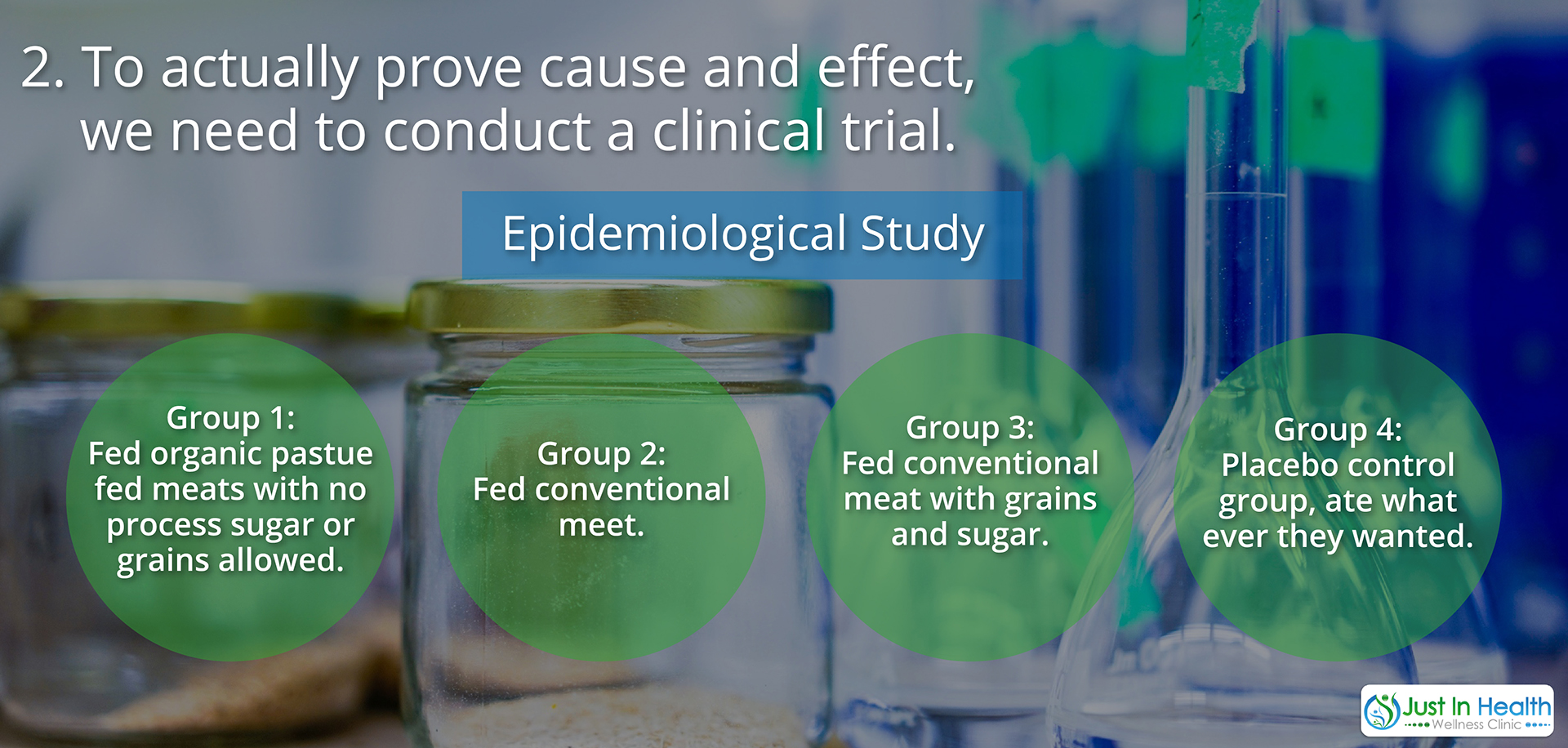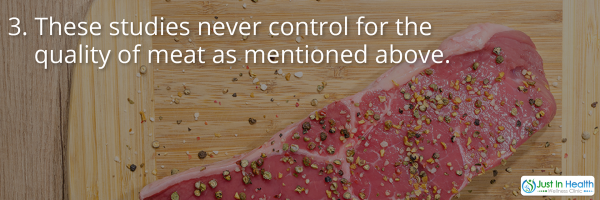
By Dr. Justin Marchegiani
According to a new Harvard study, red meat is linked to cancer and cardiovascualar disease.
Every day we see studies saying one thing and then saying the other things a few months later. After a while the public doesn't know what to believe… Why is this? I will break down the research and show you why this study isn't all it's cracked up to be, and what to look for to know if a study holds true merit.
Here are some simple items that need to be looked at first. Once observed it is easy view the short coming of this study linking meat to cancer and cardiovascular disease.

1. This study is an observational study. In the study they gave questionnaires to individuals every 4 years and looked back to see who got cancer and heart disease and what they were eating. The problem with this type of study is there can be other confounding variables like, the person ate processed hot dogs as well as the gluten/sugar rich bun, or the person ate sausage and meatballs on top of a pizza that was loaded with gluten/sugar. I think you are seeing a pattern, that when a lot of processed meats are eaten, usually there is a bunch of sugar going down with it.
The variable of gluten/sugar combined with the meats are whats called a confounding variable, it is an important factor in the study that could be causing the factors in question “heart disease and or cancer”.
We need to do specific studies that actually isolate the meat from the bun/sugar to to control for these confounding variables.

2. To actually prove cause and effect, we need to conduct a clinical trial. A clinical trial is where you isolate different groups where you can control for the diet and also have a placebo group to compare. An epidemiological study (like this one) can only conclude correlation. Correlation and causation are two different things. Gray hair is correlated with aging. It doesn't mean gray hair causes you to age. Just an association. I think you get the picture.
Click here to know more about red meat and its link to cancer
The study I am referring to may look like this:
Group 1: Fed organic pastue fed meats with no process sugar or grains allowed.
Group 2: Fed conventional meet.
Group 3: Fed conventional meat with grains and sugar.
Group 4: Placebo control group, ate what ever they wanted.
Going one step further we can make the study blinded or double blinded where the patients don't know what group they are in (very difficult), and the scientist don't know what each patient is eating (easier). This then controls for any pre-existing bias the scientist and or patients might have.
These people would then live in a metabolic ward for lets say a few months or so where they were actually fed the foods in questions. As you can see studies like this are incredibly expensive there fore they aren't done. So we use less expensive epidemiological studies using surveys and then we extrapolate the information to the public like it's a matter of truth.
Epidemiological studies like this one only help you to produce a hypothesis i.e. “I think meat causes cancer and cardiovascular disease.” From there we can now conduct a double blind placebo controlled study to test this hypothesis. It's irresponsible to extrapolate that information and put it in the media and scare everyone (which is done here) before the clinical trial has been completed.

3. These studies never control for the quality of meat as mentioned above. Organic pasture fed vs free change vs anti-biotic vs hormone free vs conventional factory farmed etc. It controls for processed vs non processed, but you can still eat bacon (which is considered processed) and it could be bacon from organic pasture fed sources of pork. The quality of the animal meat matters, but research conveniently ignores this.
Personally I do believe that conventional meat is bad for you and causes the issues sited above. But not because of the meat in general; but because of the quality of the meat and the hormones, antibiotics and the poor quality of food the animals were fed before it ended up on your table. In other words, animals that are treated well and fed well have the potential to provide wellness to the person that consumes them. Animals that are treat badly, fed like crap and injected with drugs don't have the ability to convey health to the person that consumes them.
I hope the information presented in this article will help you sniff out studies that aren't quite what they're cracked up to be.